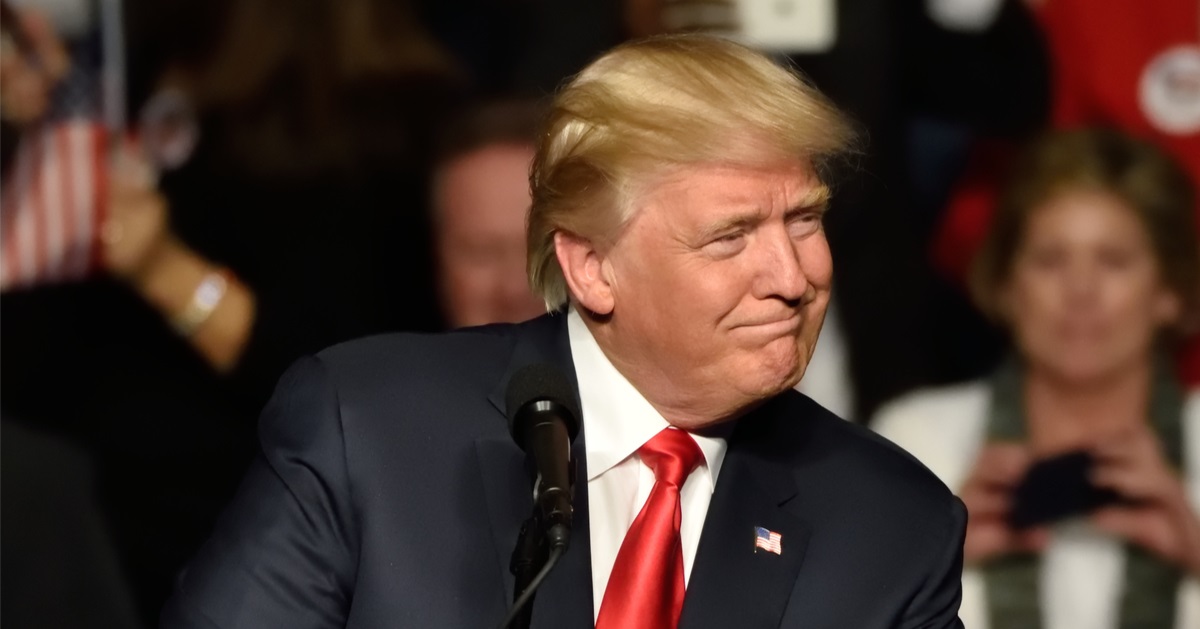Accused Trump attacker represents himself in court
Ryan Routh, accused of plotting a deadly strike against President Donald Trump at a Florida golf course, has tossed conventional wisdom aside by choosing to defend himself in a high-stakes federal trial, Newsmax reported.
The case, unfolding in Fort Pierce, Florida, centers on Routh’s alleged attempt to assassinate Trump on September 15, 2024, at Trump International Golf Club in West Palm Beach, facing five serious charges, including attempted assassination, with a potential life sentence.
Let’s rewind to that day in September when Routh, a 59-year-old roofing contractor with no legal training, allegedly positioned himself near the sixth green of Trump’s golf course. Prosecutors claim he built a “sniper’s nest” complete with an SKS-style rifle loaded with 20 rounds and ballistic plates for protection. The intent, they say, was to take a shot at Trump during a round of golf.
Routh’s Alleged Plan Unravels Quickly
Trump, at the time, was just a few hundred yards away near the fifth hole, expected to reach the sixth green within about 15 minutes. But before any trigger could be pulled, a sharp-eyed U.S. Secret Service agent spotted Routh lurking in the tree line, opened fire, and sent him running without a shot being fired.
Now, as jury selection kicks off on Monday in federal court, Routh faces the weight of charges like attempted assassination of a major presidential candidate. He’s pleaded not guilty, but the evidence prosecutors plan to present, including a chilling letter addressed “Dear World,” paints a grim picture. In it, Routh allegedly wrote, “This was an assassination attempt on Donald Trump, but I’m so sorry I failed you.”
That apology, left with an acquaintance months before the incident, is a gut punch to any notion of innocence. Prosecutors must prove intent and a substantial step toward murder, and they’ve got a strong hand with that letter alone. If that’s not a confession of motive, what is?
Self-Representation: Bold or Reckless Move?
Routh’s decision to fire his public defenders in July and go it alone in court is, frankly, a head-scratcher. “Best I walk alone,” he wrote to U.S. District Judge Aileen Cannon, dismissing the idea of a stranger speaking for him. Well, walking alone might just lead straight to a life sentence when you’re up against seasoned federal prosecutors.
Legal experts aren’t optimistic about this DIY defense strategy either. Georgetown University law professor Erica Hashimoto noted, “If his sole goal is to be acquitted, then his chances probably go down.” Turns out, navigating a courtroom isn’t quite like fixing a leaky roof—amateur hour could cost Routh everything.
Routh, who will handle his own opening statements, witness questioning, and evidence presentation, has standby counsel on hand for advice. But his court filings—like proposing a “beatdown session” with Trump or trading himself for a foreign prisoner—suggest he’s more interested in theatrics than tactics. Judge Cannon, a Trump appointee who previously dismissed a case against the former president, has already warned against turning the trial into “calculated chaos.”
Past Writings and Political Limits
Adding another layer, Routh has a history of advocating for vulnerable democracies like Ukraine and Taiwan, and even wrote a book in 2023 expressing disappointment in Trump after voting for him in 2016. He’s tried to present prior writings as proof of a non-violent nature, but Judge Cannon has ruled much of it inadmissible. Good call—trials aren’t platforms for political manifestos.
Routh also faces strict limits on ideological arguments, with prior agreements barring any claim that his alleged actions were justified. He’s itching to show the jury his concern for the “common man,” but the courtroom isn’t a soapbox. Actions speak louder, and hiding with a loaded rifle isn’t exactly a love letter to humanity.
This case, described as the second attempt on Trump’s life in two months, underscores the heightened dangers surrounding public figures in polarized times. The first incident left Trump wounded in the ear, with the gunman killed at the scene, and now Routh’s trial brings fresh scrutiny to security measures. It’s a sobering reminder that political disagreements can spiral into something far darker.
A Trial Fraught with Unpredictability
Judge Cannon’s oversight brings its own intrigue, given her past ruling in Trump’s favor on a classified documents case, which drew sharp criticism from legal scholars. Still, her presence ensures a firm hand on a trial already teetering on the edge of unpredictability with Routh at the helm of his defense. Will she keep the proceedings on track, or will Routh’s antics derail justice?
As this trial unfolds, the nation watches a man accused of a heinous act against a former president gamble with his future in a federal courtroom. Routh may believe he’s best walking alone, but in a system built on expertise and strategy, solitude might just be his undoing.
The stakes couldn’t be higher, and while Routh’s unorthodox approach might grab headlines, it’s unlikely to sway a jury focused on the cold, hard facts of his alleged actions. Sometimes, pride comes before a very long fall, and Routh seems determined to test that theory.




